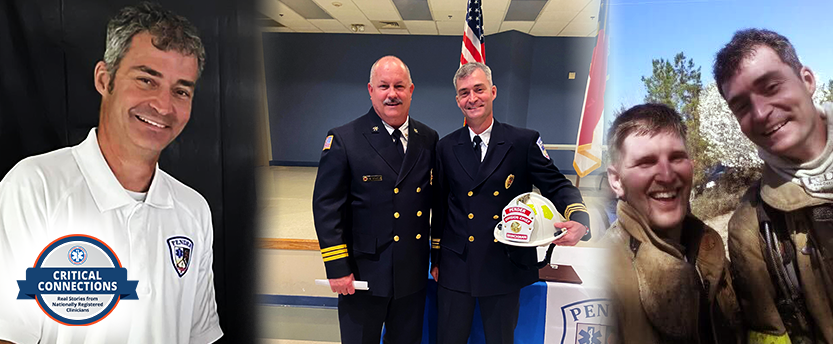For Randy Brinckman, a career as a paramedic did not begin as the result of a family tradition or a childhood dream. Instead, it started with the need for a job and the desire for camaraderie. You see, as Brinckman concluded his service in the military as an "18D" – a medic in the U.S. Army's special forces – he grappled with uncertainty about what could replace the sense of duty and the strong bond, reminiscent of family, that he experienced in the military.
“I was like, ‘well, it is kind of similar to team life,’” said Brinckman in his decision to apply for jobs in EMS and Fire, “I needed to do something, so I gave it a shot.”
Twenty-five years since departing Fort Bragg (presently Fort Liberty) and taking a leap of faith, Randy Brinckman is now known as Division Chief Brinckman of Pender EMS and Fire, Inc., responsible for overseeing EMS operations across a 933-square mile county along the North Carolina coast of the Atlantic Ocean.
“That was 20-some years ago and it was a great place to end up.”
Big changes for a small community
Since Brinckman embarked on his career with Pender EMS and Fire, Inc. in the 1990s, the population of Pender County has nearly doubled. Now, with over 62,000 residents and attracting 300,000 tourists annually, he observes that some things have indeed changed.
“Believe it or not, the types of calls have remained relatively similar, but there are a whole lot more of them today – 10,000, in fact, on just the EMS side,” says Brinckman.
As a result, Pender EMS and Fire, Inc. have evolved and adapted. The county now utilizes quick-response vehicles to ensure paramedics are readily available for cardiac arrests or major trauma calls. Simultaneously, they have expanded the capabilities of Advanced EMTs, enabling them to handle many calls that previously would have tied up a paramedic for hours.
“Every emergency is important to the caller, but this way, we don’t have to tie up a paramedic for a cat scratch or minor illness,” says Brinckman. “We decide how better to utilize the available paramedics to ensure everyone is receiving the appropriate level of care.”
Additionally, Pender EMS and Fire, Inc. works closely with local law enforcement, the U.S. Coast Guard, and the U.S. Forest Service.
“Our county is the fifth-largest by land area in the state and has diverse geography – the Atlantic Ocean, major rivers, a 63,000-acre game shelter and forest, suburban communities, and major highways and interstates,” says Brinckman. “We had to adapt, and working collaboratively, like we do with other agencies, is a force multiplier for our citizens and visitors.”
Adapting also involves integrating technology. During Brinckman's tenure, Pender EMS and Fire, Inc. introduced drones for the first time, employing them extensively in search and rescue operations.
“Imagine the time we are saving with drones for distressed boater calls or lost children along the beach or in parks,” says Brinckman. “These are a big deal, and they are expensive, but they also are changing outcomes and positively affecting response times in getting care to people.”

Having more tools in the toolkit
For Brinckman, tools extend beyond quick-response vehicles and drones; education and experience stand out as the most crucial assets.
“The streets have their own education, and you learn from the experiences you encounter on every call,” says Brinckman. “But you won’t have a book, so you have to be prepared and know how to rely on your gut.”
He also knows a strong foundation is where it begins.
“EMS is constantly changing, and this field is all about education,” Brinckman says. “You need all the tools in the toolbox to be successful – another wrench, another skill. Education fills that toolbox.”
Brinckman has maintained his National Registry status continuously since 1999, a standard he considers to be exemplary and surpassing expectations.
“In the military, we were always certified through the National Registry and that is all I knew,” he says. “I just continued doing it and have for years because it means a lot to me, and at this point in my career I intend to keep it.”
An ounce of prevention …
Speaking of education, Brinckman says Pender County EMS and Fire, Inc. responders take a proactive approach with local citizens and tourists.
“We aim to educate and inform, not only to prevent illness, injury, and trauma, but also to reduce the likelihood of recurring incidents,” he says.
This is particularly important in areas with a significant influx of vacationers and tourists who may not fully understand the potentially hazardous situations they expose themselves to.
“At the beach and parks, we try to educate people on the importance of drinking water – and remind them that beer and Mountain Dew do not count,” says Brinckman. “A lot of what we see could have been prevented by simply paying more attention to proper hydration before a fun day in the sun at the beach, out on the ocean, or in the intercoastal waterway.”
Brinckman says people often underestimate the power of recreational waters while also overestimating their abilities when it comes to operating boats, surfing, or bodyboarding. “We see a lot of boat accidents and we see a lot of neck injuries,” he says. “And, once again, a little common sense goes a long way in many, if not most, of these situations. So, we become the teachers, trying to impart some wisdom and safety so their vacations can be more enjoyable.”
The ones you remember and the ones that really stick with you
When asked what calls stick out the most in his mind, Brinckman says there are a lot of them that do – some amusing and others he wishes he could forget.
“We got called to a nursing home one day for an elderly lady with breathing problems – she was due for an appointment and wasn’t feeling well,” Brinckman recalls. “I explained that we needed to take her to the hospital, but she was not going anywhere until she put on her makeup.”
Attempting to strike a balance between concern and humor, Brinckman reminded his patient that she was experiencing an issue, and her condition could potentially escalate into something more serious.
“She was having none of it,” Brinckman laughs. “It was hilarious – she was putting on lipstick and eyeshadow because she wanted to look presentable at the hospital.”
Not all calls go the way you want or hope.
“Those calls are not funny or hilarious, even with the use of the defense of the dark humor we know exists in our field,” says Brinckman. “Back when I started, we would clam up and not talk about what we were experiencing or going through following an emotional or traumatic call.”
Brinckman mentioned that previously, their awareness of mental health extended only to a poster on the wall. However, as the division chief now emphasizes, there's a more proactive approach in place, driven by a deeper understanding of the seriousness and impact of mental health issues.
“There are many more programs available now, from EAP to therapy dogs,” says Brinckman. “You are not the only one going through this or experiencing these feelings and thoughts. We have all been there and it is time we get it into the open so we can appropriately deal with it.”
In Brinckman's perspective, taking breaks from work is crucial. EMS work can exact a mental toll, so he advocates for hobbies completely unrelated to the job. For Brinckman, that means indulging in model trains and remote-controlled cars.
“Hey, I get it. The side hustle or an extra shift is important or can be appealing,” says Brinckman. “But you have to get away and not let it be part of every moment of your life, or it will consume you.”

Not bad for “giving it a shot”
For a former special forces medic who decided to “give EMS a shot,” Division Chief Randy Brinckman has made it into a very special career. He went from serving in one of the most elite teams in the military to leading a very special group of first responders – those who answer the calls for help in another person’s darkest hour.
His recipe for a long and successful career?
“Be humble, be kind, show compassion, and don’t forget where you came from,” says Brinckman. “We tend to forget those things over time – have patience with people.”
Read More Articles In The Critical Connection Series
James Avery - "An Unexpected Destiny - How One EMS Provider Discovered Sometimes Fate Has Other Plans"
Randy Brinckman - "From Special Forces to a special career"
Jessica Cervantez - "Be A Rock In The Moment People Are Falling Apart"
Savanna Coker - "Waves of change: A departure from the Baywatch narrative"
Claire Countryman & Chris Ruggiero - "The next chapter could save a life"
John Nemes - "The journey of an EMS chief"
Tom Perreault - "43 Years Down and a Lifetime to Go"
Justin Solobay - "A Night To Remember"
Meryah Wilson - "Calm and collected; an Ohio paramedic makes history with her city’s department"
Bill Wood - "50 Consecutive Years Of National Registry Certification"
Media Contact:
Shane Cartmill
Public Relations and Media Manager
scartmill@nremt.org
From Special Forces to a special career
May 15, 2024


